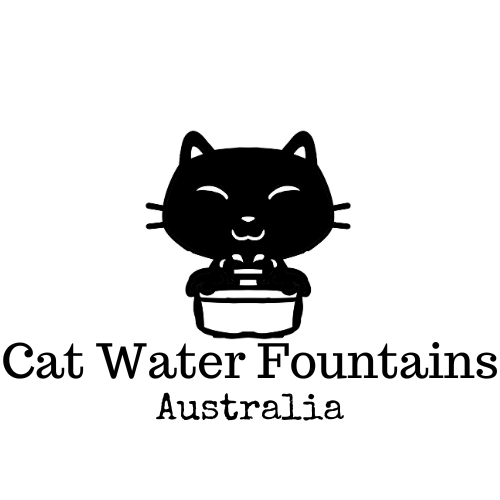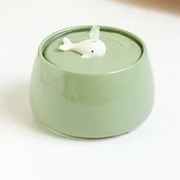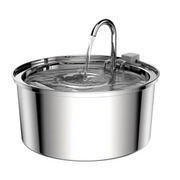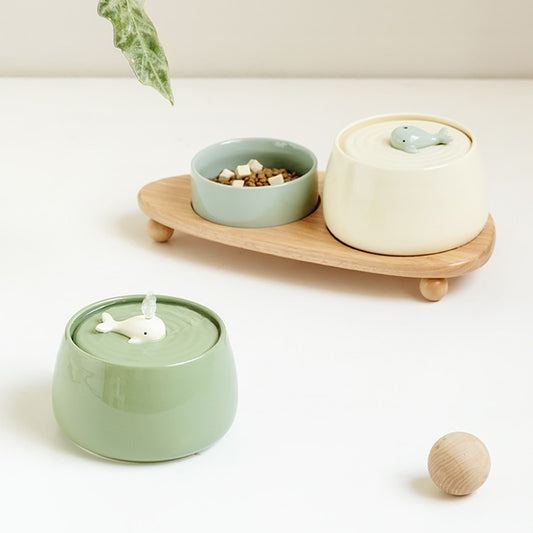How to Choose the Best Cat Water Fountain
Cat Water Fountains Australia
Share This Article
Choosing the right cat water fountain shouldn’t be a guessing game. By the end of this article, you'll know exactly what to look for and how to avoid wasting another dime on something your cat won’t touch.
As the owner of Cat Water Fountains Australia, I’ve studied over 100+ fountains, scoured countless Reddit discussions on /r/cats (6.8m members), and received feedback from hundreds of customers. I’ve done the legwork so you don’t have to.
Stick around, because I’m going to reveal the best fountain on the market that ticks all the boxes.
Every Cat is Different: What Works for One Might Not Work for Another
Now, just like humans, no two cats are the same. Some may love a fountain, while others turn up their nose. Cats are quirky creatures, and sometimes you might not find an instant winner—psychologically, they can be as different as night and day.
But here’s the thing: what I’m about to share will give you and your cat the best possible chance at success.
Cat Hair Remover Roller
Order Online in Our Store
Key Features to Look For in a Cat Water Fountain
When it comes to choosing a cat water fountain, not all are created equal. Let’s break down the essential features to look out for so you can make the smartest choice.
1. Material: Stainless Steel and Ceramic Are King
The best fountains are made from stainless steel or ceramic, hands down. Why? They’re easy to clean and less likely to harbor bacteria. Plastic is often the go-to for first-time cat owners because it’s affordable and widely available, but it has a major downside: over time, plastic gets scratched, creating perfect hiding spots for bacteria. If you’re serious about hygiene and your cat’s health, go for stainless steel or ceramic.
According to veterinarians, stainless steel and ceramic are recommended for food and water bowls due to their durability and ease of sanitation. This reduces the risk of feline acne, which can be caused by bacteria from scratched plastic.
2. Size and Capacity: Not Too Big, Not Too Small
Size matters. Get a fountain that’s too small, and you’ll be filling it up every day. Too big, and your cat might not be able to comfortably reach for a drink. The sweet spot is a fountain with just enough capacity to hold water for a couple of days, especially if you have more than one cat. This way, you're not constantly refilling, but it’s not too big for your cat to use.
For a single cat, a fountain with a 2 to 3-litre capacity is ideal, while multi-cat households might want something closer to 4 litres to ensure the water supply lasts between refills.
It's helpful to understand a cat's daily water intake. Find your cat's daily water needs with our cat water intake calculator.
3. Noise: Keep It Quiet
A noisy fountain is a no-go. The pump should be quiet, under 30db, so it doesn’t scare your cat off. But it’s not just the pump. You also need to think about where the water comes out (the faucet). If it falls from too high, the sound of splashing water can be jarring. Remember, the goal is to invite your cat to drink, not scare them away with a waterfall.
4. Wireless Capability: More Freedom for Your Cat
Wired fountains limit you to spots near power points, which isn’t ideal if your cat has a favourite drinking spot. A wireless fountain gives you flexibility. You can place it wherever your cat prefers, whether that’s in the kitchen, the living room, or tucked away in a quiet corner.
Plus, for cats that love to play with cords, a wireless fountain eliminates the temptation, keeping both your feline and the fountain safe from accidental spills or damage.
5. Filtration: The Reason You’re Getting a Fountain
One of the main reasons you’re even considering a cat fountain is to purify the water. Make sure the fountain has a high-quality filtration system, one that removes impurities and keeps the water fresh. Also, check that replacement filters are easy to find. You don’t want to be stuck with a fountain you can’t maintain because filters are hard to come by.
Look for fountains with carbon or foam filters, which remove impurities and help keep the water fresh. Filters should be replaced every 4 weeks to ensure optimal water quality.
According to veterinary studies, adequate hydration can reduce the risk of chronic kidney disease, a common ailment in cats.
Conclusion: The Best Fountain for Your Cat
Now that you know exactly what to look for in a cat water fountain. Stainless steel or ceramic for hygiene, the right size and capacity, quiet operation, wireless flexibility, and reliable filtration—you can make an informed decision. It’s time to act. You’ve got the knowledge, so make the choice that’ll keep your cat healthy and hydrated.
So, what’s my top pick that ticks all the boxes? Our 4L Wireless Cat Fountain below. It combines everything you need. Quiet operation, easy cleaning, wireless flexibility, and efficient filtration. All wrapped up in one sleek package. With this fountain, your cat will stay hydrated, healthy, and happy, while you get peace of mind knowing you made the best choice.
Related Posts:
- Why Your Cat Prefers Running Water
- Why is My Cat Drinking so Much Water
- How to Introduce Your Cat to a New Water Fountain
- Why Your Cat Refuses to Drink Water
Shop:
Cat Water Fountains | Stainless Steel Cat Water Fountains | Ceramic Cat Water Fountains | Cordless Cat Water Fountains











1 comment
Hi Aagin, if you have the water running continuous do you need to have the fountain plugged in? Cheers John